Propane vs Natural Gas: Differences, Pros, Cons & FAQ
-

- Last updated:
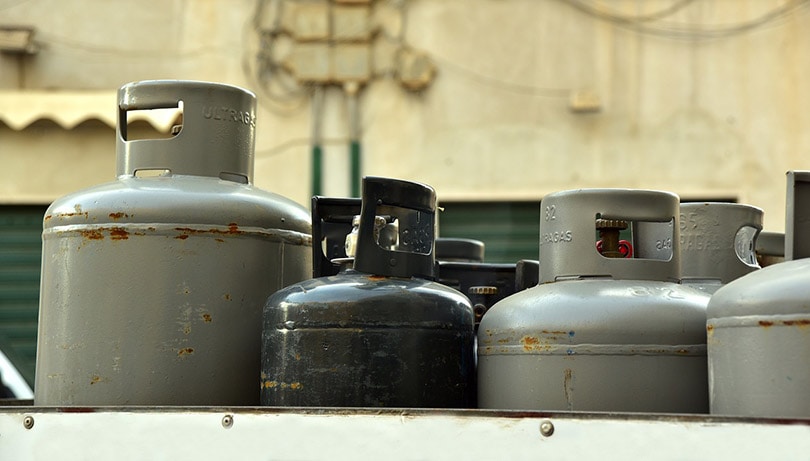
Propane and natural gas are two very similar chemicals that are used in two very similar ways. So what are the main differences between these two common fuel types? You can power a grill with propane or a stove with natural gas. Are these two fuels interchangeable? Where are they most commonly used? Which fuel type is better or best?
This in-depth overview will cover all of the bases and get to the details about what differentiates propane from natural gas. This overview covers the usage, production, chemical makeup, and residential details of both of these fuels. At the end, there is a quick table that breaks it all down in a digestible bite. After this, you will never be flummoxed by the subtle differences between propane and natural gas ever again.
Quick Comparison
If you just want the quick and dirty, here is an easy comparison chart that lists the main differences between propane and natural gas.
- Delivery Method: Containers
- How It Is Billed: Cubic Feet
- Energy: More
- Price: Cheaper
- Green Energy: Very Clean
- Delivery Method: Pipes
- How It Is Billed: Gallons
- Energy: Less
- Price: More Expensive
- Green Energy: Fairly Clean
Overview of Propane
Propane is a clean gas that is used to power a variety of different things. Propane is used to heat homes, power water heaters, outdoor heaters, fireplaces, grills, and certain types of industrial equipment and vehicles. Some public transportation runs on propane, and so do forklifts. All of this power is clean, efficient, and affordable.
The chemical formula for propane is C3H8. That means propane is made up of three carbon molecules and eight hydrogen molecules. Chemicals like propane are where we get the term hydrocarbon fuel from. Propane is a hydrocarbon that is made up entirely of these two critical molecules.
Propane’s use is on the rise around the world. Propane is being utilized more frequently for two key reasons. First, more natural gas is being produced than before. As nations try to move away from dirtier fuels like crude oil, the demand for natural gas has risen. As natural gas production rises so too does the production of propane. The second factor is that propane is a very clean gas. Despite being a product connected to the gas refining industry, propane burns very cleanly. It produces no harmful emissions and is extremely efficient as a source of fuel.
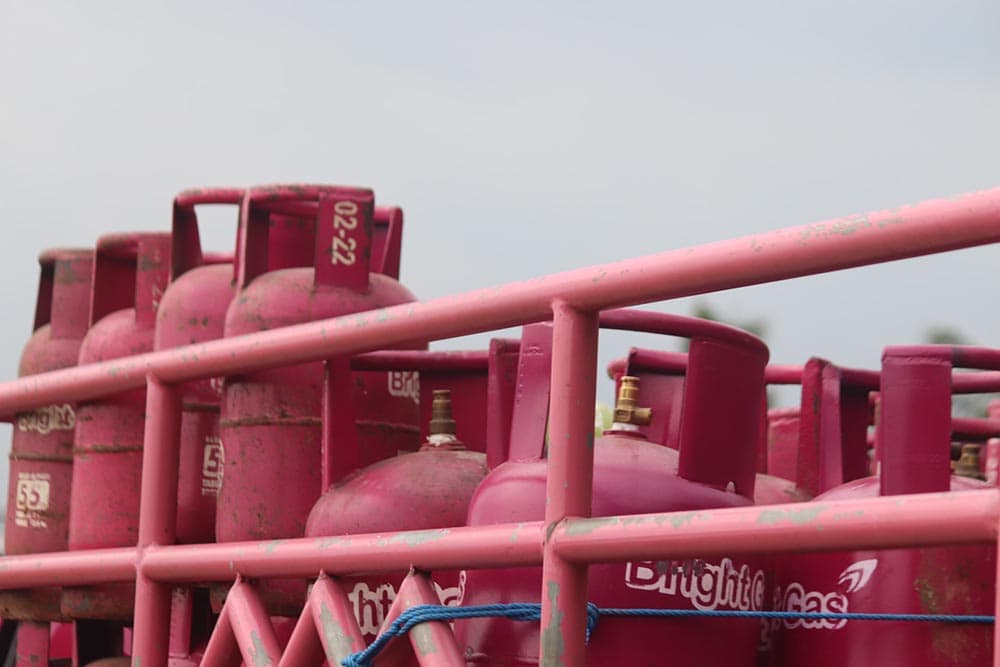
Where Is Propane Used?
Propane is almost exclusively sold in tanks, canisters, and cylinders. Propane is primarily used in residential settings and for moving machinery. Anything that needs to be refueled regularly could be a good candidate for propane. Vehicles commonly powered by propane include forklifts, skid steers, city buses, and recreational vehicles such as ATVs and UTVs.
Propane is stored in large tanks or cylinders and has to be refilled or swapped out when it runs low. That makes propane ideal for some situations. Indoor fireplaces, outdoor heaters, and furnaces all can run on propane without much trouble. Since these things only create heat, they are ideal for propane usage. When the propane runs low, a serviceman refills the tanks.
Propane is used all around the world in residential, commercial, and industrial settings. It is ideal because it does not require heavy infrastructure to work as natural gas does.
How Is Propane Made?
Propane is made by capturing byproducts during natural gas refining. Pure propane is one of the liquid byproducts of natural gas. During the refining process, propane is captured, siphoned, and stored. After the propane is captured at the refinery, it is shipped off to large depots where it is collected for distribution to national and regional sellers, who then pass it along to the end user.
There are also efforts to reproduce propane by using entirely natural processes. Studies are being conducted into how to use bacteria, algae, and plants to produce the C3H8 molecules without having to refine natural gas. If these processes are ever found to be viable on a mass scale, the future could be powered by a lot more propane it than it is now.
- Clean
- Efficient
- Currently plentiful
- Somewhat expensive
- Requires fossil fuel industry to create it
Overview of Natural Gas
Natural gas is a clean form of fossil fuel that has been growing in popularity in recent decades. It is much cleaner than crude oil and is found in more diverse locations than raw crude oil. Natural gas is used around the world to power massive industries and entire sectors of some economies. It is a vitally important source of fuel in the 21st century and is traded and burned in massive quantities.
Unbeknownst to most people, natural gas is mostly methane. The chemical formula for methane is CH4. The only thing separating natural gas from pure methane is traces of hydrocarbon byproducts, like propane, that are attached to the raw gas when it comes out of the ground. Natural gas is typically 80-90% methane, with the remaining percentages made up of other materials. The most common byproducts attached to natural gas are propane, butane, and ethane. Propane, as we covered, is a very popular fuel source. Butane is also heavily used in modern life and is the main fuel source for many lighters.
Natural gas is affordable, plentiful, popular, fairly clean, and extremely versatile. It has benefits as a fuel and as a refining material that produces other important petrochemicals used in modern industry all over the world.
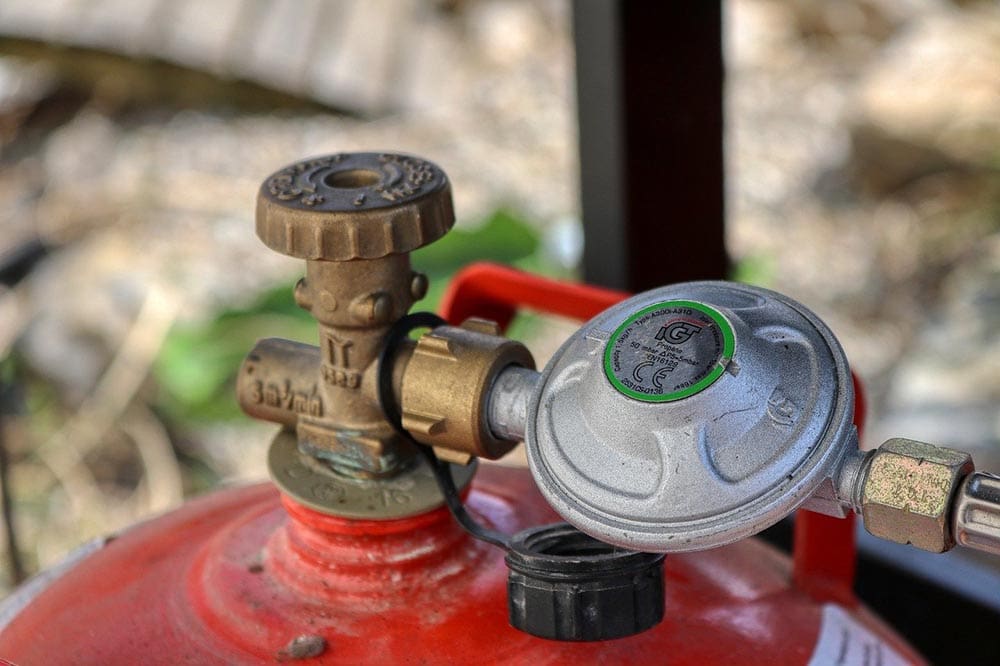
Where Is Natural Gas Used?
Natural gas is used in every facet of modern life. For example, in Europe, 25% of all power is generated by natural gas. That is second only to oil at 37%. The United States used even more natural gas. They produced 32% of their power from natural gas. That means anywhere in the Western world that you flip on a light, you could be drawing power from natural gas.
In the United States, natural gas is evenly split between various economic sectors. According to the US Energy Information Association (EIA) natural gas usage is heaviest for power generation. The EIA says that 37% of the US’s natural gas goes to creating power, 33% goes to powering heavy industry, 15% is used for residential purposes, and 11% goes towards commercial properties. That means that natural gas is involved in every corner of the US economy, from home grills to factories and power plants.
When natural gas is used in a home, it is generally for powering appliances such as driers, hot water heaters, and lanterns. Natural gas can also be used for indoor fireplaces and stoves to create consistent flames. Natural gas is more common as a residential fuel in more places than others. Not every community has access to natural gas pipelines.
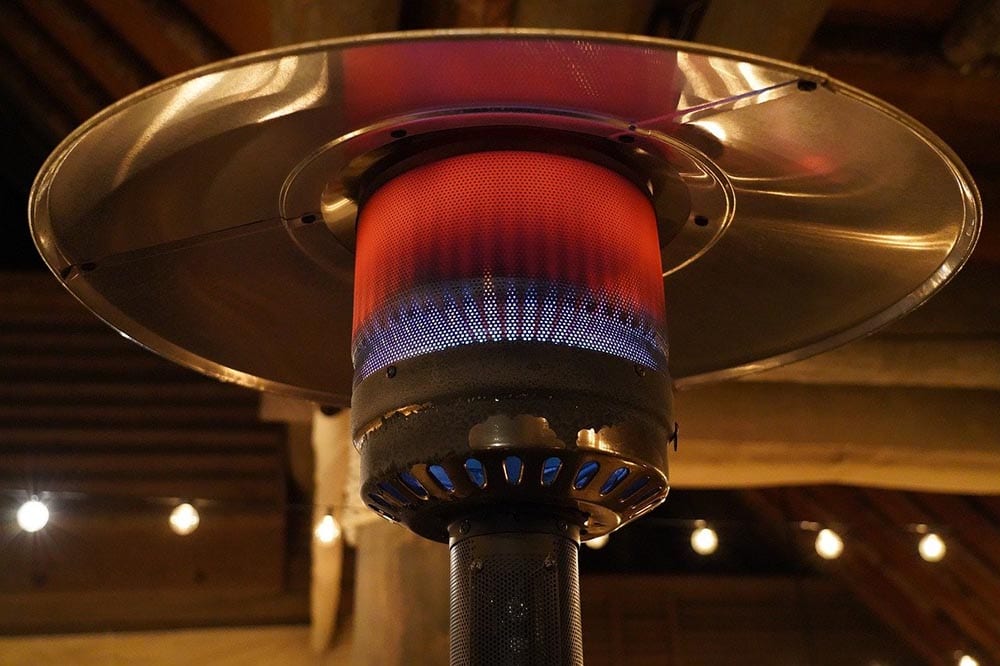
How Is Natural Gas Made?
Natural gas is drilled and pumped out of the ground. Similar to oil, natural gas naturally forms deep inside the Earth, trapped under tons of rock and millions of years of decomposition and change. Natural gas pockets are probed by surveyors and then tapped with a drill. The drill then works to move the natural gas up to the surface, where it collects in a well where it can be harvested and shipped off to be refined.
There are three types of natural gas that occur in the ground, conventional, unconventional and associated. Conventional natural gas pools in large deposits in between rock layers. This is the easiest type to understand because it looks a lot like an oil deposit. Unconventional natural gas is trapped within a layer of sedimentary rock. In the United States, that is most commonly shale, which is why shale gas and shale drilling are often in the news. The last type, associated, piggybacks on large existing oil wells. Associated natural gas is pumped out of the ground alongside crude oil.
After it is drilled and pumped, it gets refined into a more usable form at refineries. The most common type of natural gas used worldwide is gaseous natural gas. That means it is not a liquid like gasoline. It is simply a gas. Without the additives that are infused into the gas during refining, the gas is colorless and odorless. The smell of natural gas is an unnatural additive that allows people to be able to tell if there is a gas leak.
- Affordable
- Extremely versatile
- Cleaner than crude oil and gasoline
- Nonrenewable resource
- Can be explosive
Frequently Asked Questions
Is Propane or Natural Gas Better?
Propane and natural gas are very similar, and one is not necessarily better than the other. They both have pros and cons that work for some people but not others. Propane burns cleaner than natural gas and only creates water vapor, carbon dioxide, and heat when it is burned. Natural gas is a little dirtier and less efficient than propane, but it can power an entire house, is more versatile, and is generally cheaper.
If you have an existing natural gas infrastructure in a house, then it usually makes more sense to continue to roll with natural gas. If you have no natural gas infrastructure, propane is easier to install and use than natural gas.
In most cases, it will come down to what is being fueled, what the status of the existing infrastructure is, and how much fuel you need to buy. These factors will determine whether or not propane or natural gas is better for your individual circumstances.
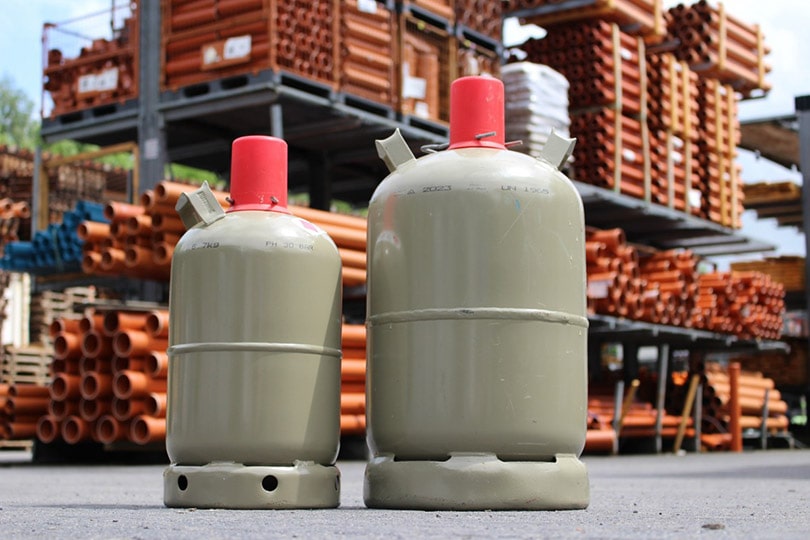
Is Propane or Natural Gas Cheaper?
Natural gas is generally cheaper than propane. Natural gas also burns much quicker than propane. Propane burns about half as quickly as natural gas. Calculating the exact difference in price is not straightforward for a few reasons. First, both of these types of fuel are sold in completely different ways. Natural gas is billed off of a meter using a gas pricing system, while propane is bought by the gallon or the tank. When calculating the difference in price, many professionals break it down into cost per BTU of energy. When you compare propane and natural gas, propane is roughly four times as expensive when it comes to the total energy output. However, since it burns twice as quickly, that cuts the price difference in half.
Unless you are using a lot of fuel, the price differences won’t really be all that noticeable. If you are running a large number of appliances on fuel, such as heaters, fireplaces, stoves, dryers, and outdoor lights, you probably want to go with natural gas. If you use less fuel or only power a couple of things, you could stick with propane and not notice the price.
The other factor to consider is the fact that getting a natural gas line installed in a home that does not already have one can be very expensive, which will offset a lot of price differences that you get with cheaper natural gas.
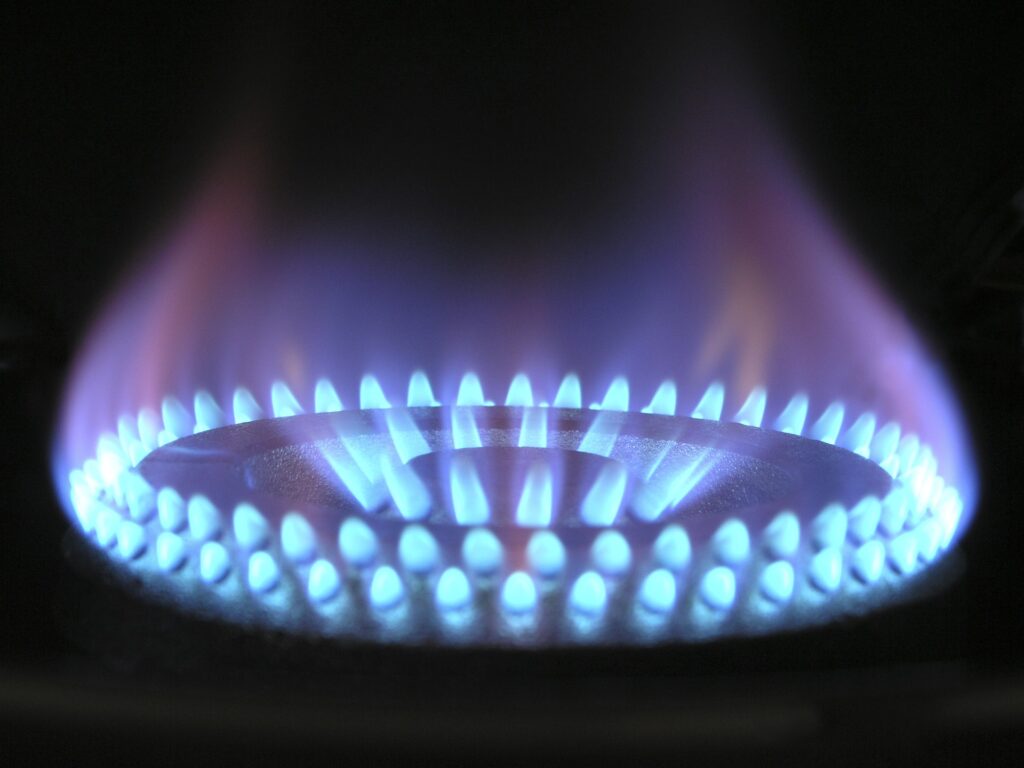
Can You Convert from Propane to Natural Gas or Vice Versa?
You can replace your infrastructure to support propane or natural gas, but the swap over can be intensive and expensive. You can only change to natural gas if you live in an area with an existing natural gas network. Not every community has the natural gas pipelines required to pump gas into a home. If your community does not have a natural gas infrastructure in place, you cannot switch to natural gas.
If your community does have natural gas piping, you can pay to have your home hooked into the network, but it could take years to recoup the costs to make the change worth it. Similarly, you can change over to propane from natural gas. Swapping to propane can be done anywhere because it does not require existing infrastructure to complete. You just need to install the necessary tanks and pipes. Going from natural gas to propane is not as common because propane is more expensive to run over the course of a year, and if you already have the natural gas lines installed, it usually is not worth the time, money, and effort to also install a propane system.
In either case, it is possible to swap between natural gas and propane, it just takes time and money for the job to get done. The decision as to whether the benefits are worth the effort will change on an individual basis.
You cannot, however, run propane through a natural gas system or natural gas through a propane system. Despite the fact that they are similar, they are not the same. Natural gas is completely gaseous and is stored at much lower pressures than propane.
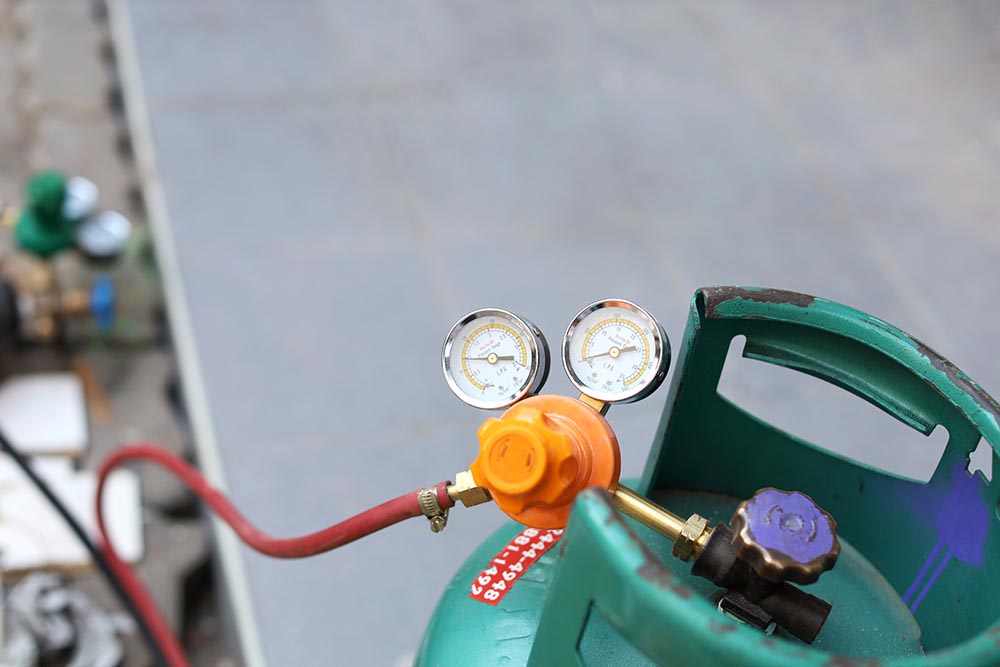
Conclusion
Propane and natural gas are very similar types of fuel. In fact, you cannot have one without the other. Propane is created from natural gas refining processes, and natural gas contains natural traces of propane. The two are inextricably linked. Both are heavily used in modern society, but each has its own benefits that will appeal to different types of businesses, industries, homes, and individuals.
Featured Image Credit: ulleo, Pixabay
Contents


